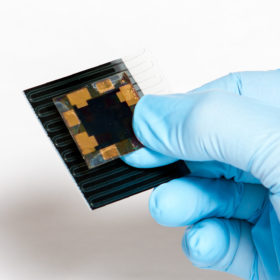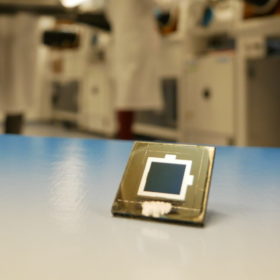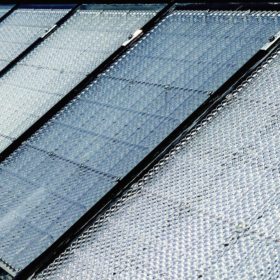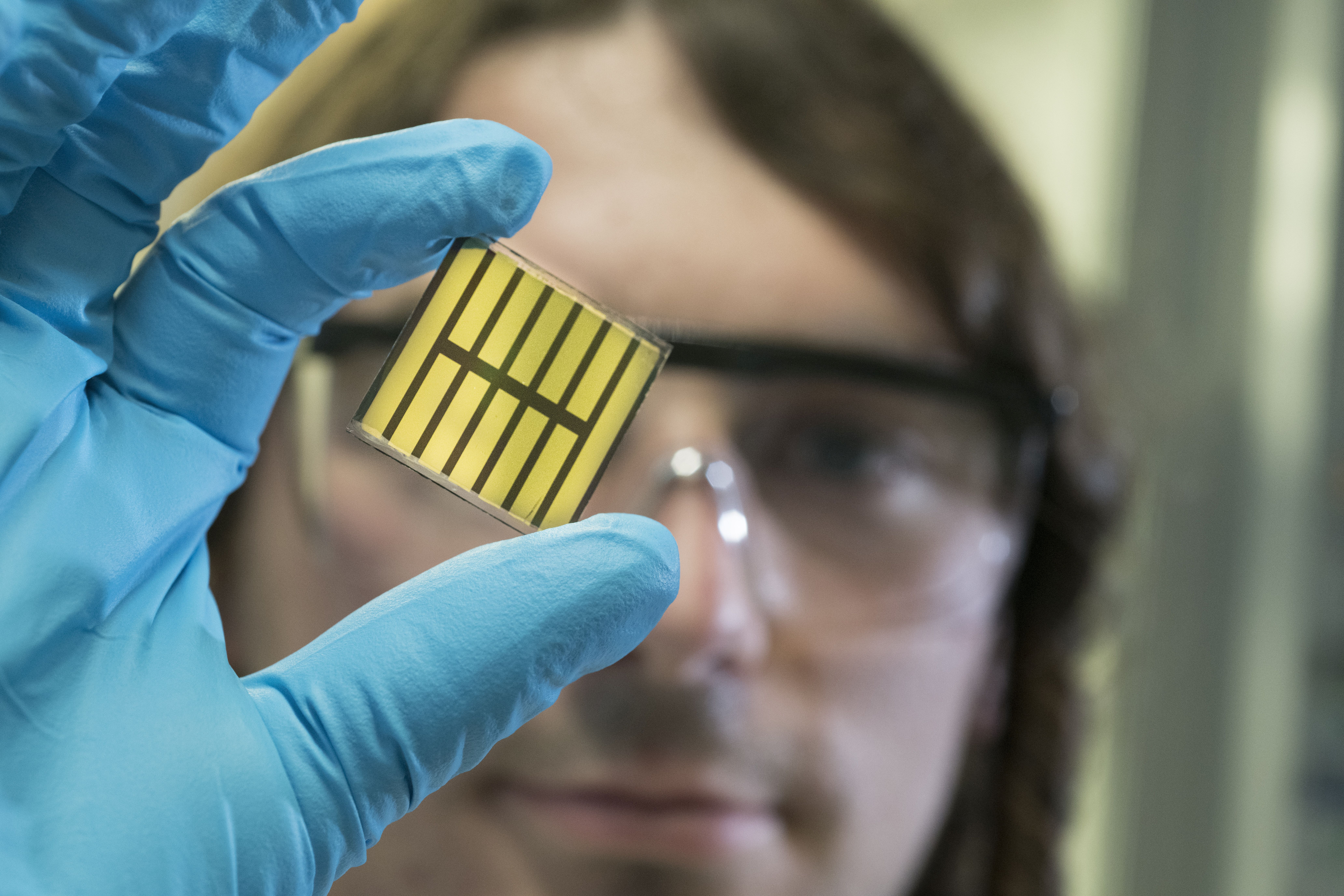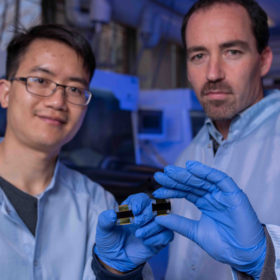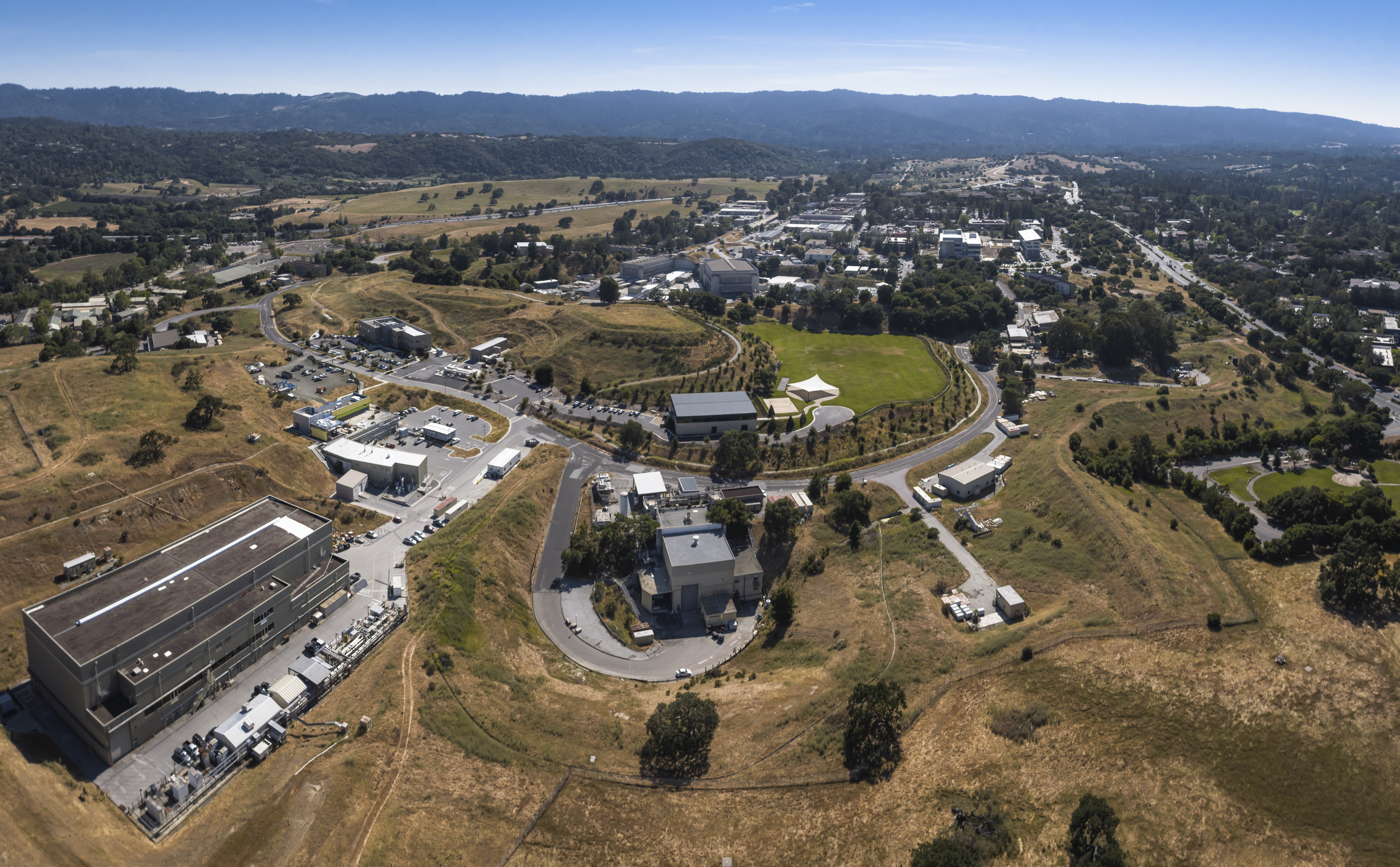Discovery challenges accepted wisdom on organic PV
Researchers at the University of Warwick in the U.K. have made a discovery that could lead to new designs for organic PV devices. Their findings could open up a new range of materials for the electrode layer and bring low cost, flexible organic PV devices a step closer commercial reality, say the academics.
Teaming up on tandem performance
California-based Hanergy subsidiary Miasolé and European perovskite research institute Solliance have combined their thin film expertise to produce a 23% efficient flexible tandem device consisting of a semi-transparent perovskite cell on top of a flexible CIGS counterpart.
HZB hits 23.26% efficiency with CIGS-perovskite tandem cell
Scientists from the Helmholtz Zentrum Berlin research institute this morning presented a new world record efficiency for a tandem cell combining CIGS and perovskite technology at the EU PVSEC conference in Marseille. The development of an organic coating layer between the two semiconductors was key.
Opportunities for integration: EU PVSEC 2019
Germany’s Fraunhofer ISE is presenting a wide range of solutions for integrated PV – alongside farming, vehicles, the built environment and more, at the 2019 EU PVSEC show happening this week in Marseille.
Pay-as-you-go solar startup receives $5m from EU
PEG Africa, a company offering pay-as-you-go solar to consumers and businesses in West Africa has received a $5 million investment from European Union initiative ElectriFi. The company says it has now secured more than $50 million and plans a major expansion.
Space age solar solution moves toward production
A consortium of European research institutes has received €10.6 million in EU funding to establish pilot production of a high efficiency module concept developed by Swiss startup Insolight. The module combines high efficiency multijunction cells with a solar concentrator lens and has previously demonstrated 29% efficiency.
German scientists team up for perovskite tandem cells
Two of Germany’s leading research institutes and a CIGS module maker have announced plans to work on the development of perovskite-CIGS tandem cells with a target of producing thin film modules with better than 30% efficiency.
Australia National University hits new perovskite efficiency record
Scientists at the institution have achieved 21.6% efficiency with a perovskite cell measuring 1cm². The landmark has been verified as a new world record for perovskites at this size.
Coating could lead to commercial lithium-metal batteries
A new coating developed by scientists at Stanford promises to bring lithium metal batteries ‘closer to reality’, by significantly extending their operational lifetime and limiting the occurrence of dendrites at the anode, which can cause short circuiting and fires.
Canadian researchers have done the math on optimizing PV output
Mathematicians at Canada’s University of Waterloo who turned their attention to solar power have developed an algorithm they say offers better control over PV plant output. The researchers estimate the algorithm could improve the output of a 100 MW power plant by almost a million kilowatt-hours per year.


